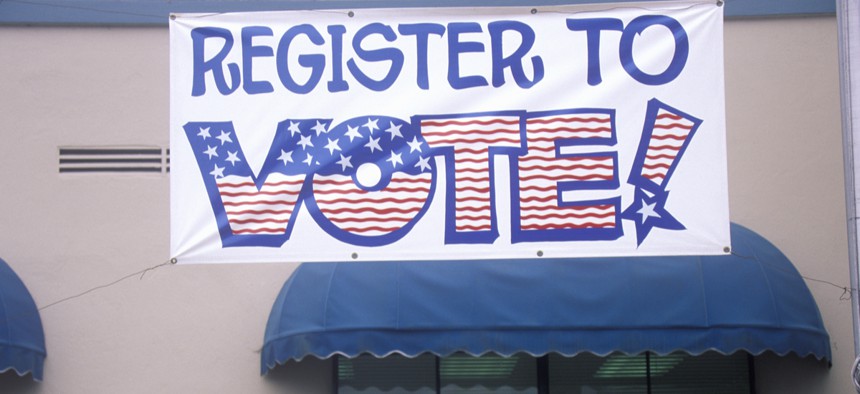New York's Online Voter Registration Will Become Accessible to Blind Voters

The lawsuit, filed in 2016, alleged that websites for the two state agencies were not compatible with screen-reading software used by blind people to navigate online. Shutterstock
Websites for the board of elections and DMV must be accessible by the end of the year under the terms of a lawsuit settlement.
Websites for the New York state Board of Elections and the Department of Motor Vehicles must become accessible to blind voters by the end of the year under the terms of a lawsuit settlement reached this month.
The lawsuit, filed in 2016, alleged that two blind plaintiffs had tried repeatedly to register to vote online but found that websites for both the board of elections and the DMV were not compatible with screen-reader software, an assistive technology that reads webpages out loud to help blind users navigate online.
The software could not read several downloadable and fillable forms on the sites, including a section on political party affiliation. The only way for blind users to complete that form was to print it and have someone help them sign it, which the plaintiffs argued was a violation of privacy that also represented a loss of independence.
“I was thrilled when New York created an online voter registration form, thinking it would enable me and others to register to vote privately and independently for the first time,” said Meghan Schoeffling, one of the plaintiffs named in the lawsuit. “But because the DMV failed to ensure the site was fully accessible, I was unable to register to vote without sighted assistance.”
Under the court agreement, the Board of Elections and the DMV must make their websites accessible to screen-access software within two years and must ensure that online voter registration complies fully with the web content accessibility guidelines by the end of 2019. That process includes designating an employee to act as a website accessibility coordinator and meeting various reporting benchmarks.
“It is my fundamental right to access and navigate websites as freely as my sighted counterparts,” said Eva Eason, the lawsuit’s second plaintiff. “No voter should be overlooked by the state. Every vote must count. This is long overdue.”
The New York City Board of Elections lost a different voting legal battle this week when a state judge ruled that the mayor’s office could place dozens of additional language interpreters at polling places throughout the city in a special election on Tuesday.
The board provides interpreters for multiple languages inside polling places, but Mayor Bill de Blasio had pushed to add speakers of Russian, Haitian Creole, Yiddish, Polish and others, according to the New York Daily News. The board had argued that additional interpreters could impede voters’ path to the polls or engage in electioneering. A state judge ruled in favor of the city, and the board lost a later appeal.
“This isn’t just a win for all New Yorkers, it’s a win for democracy itself,” de Blasio tweeted after the verdict. “Nothing should stand in the way of the right to vote—especially not your language.”
Kate Elizabeth Queram is a Staff Correspondent for Route Fifty and is based in Washington, D.C.
NEXT STORY: The States With the Best and Worst Levels of Well-Being





